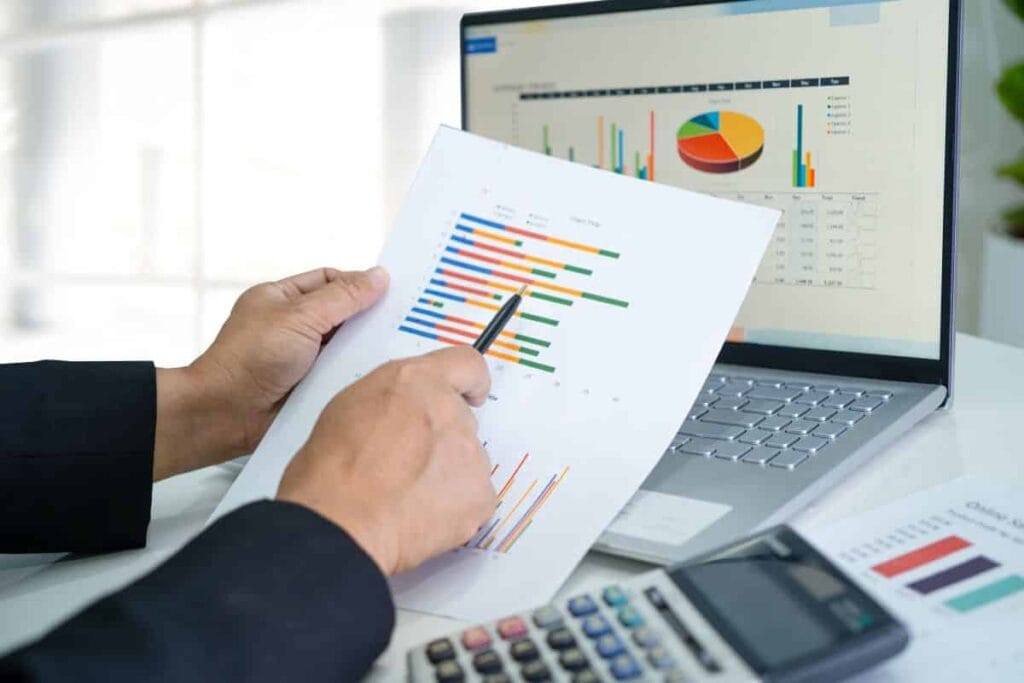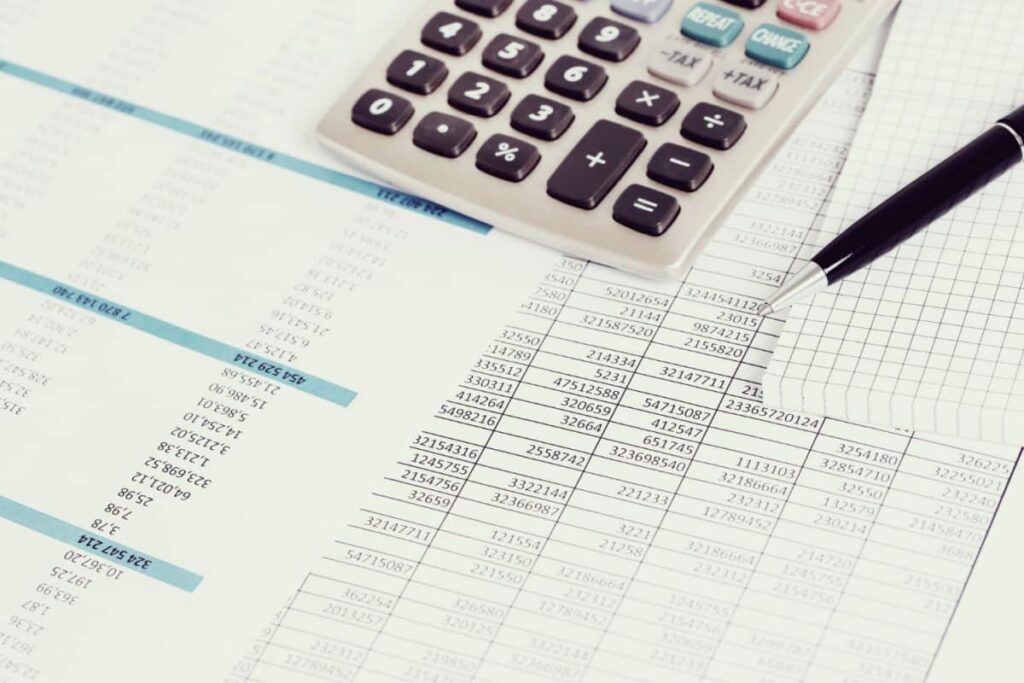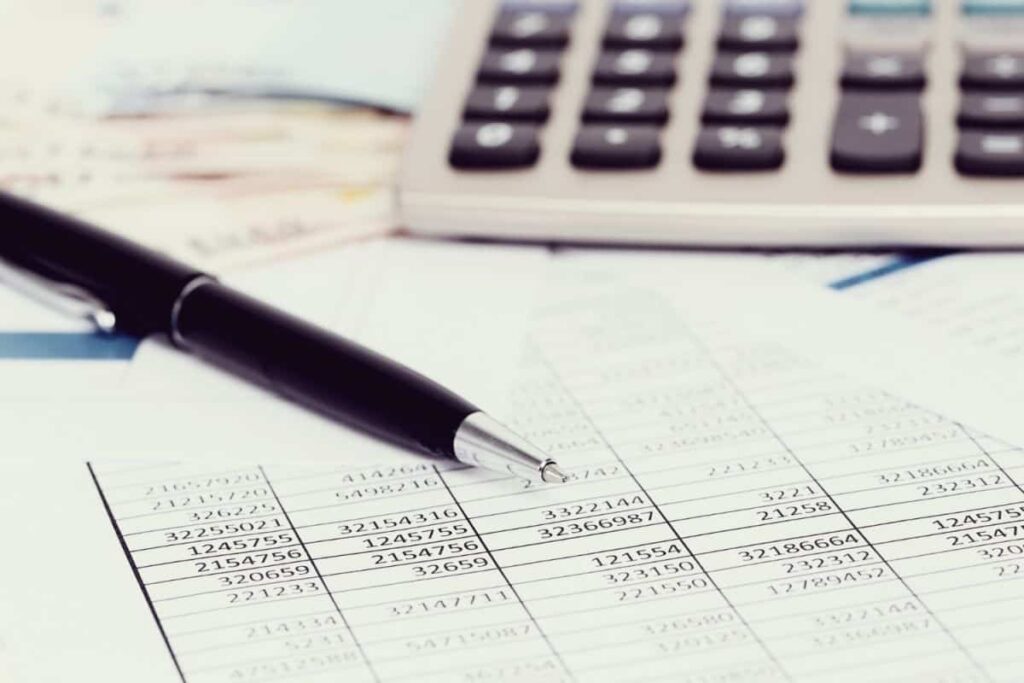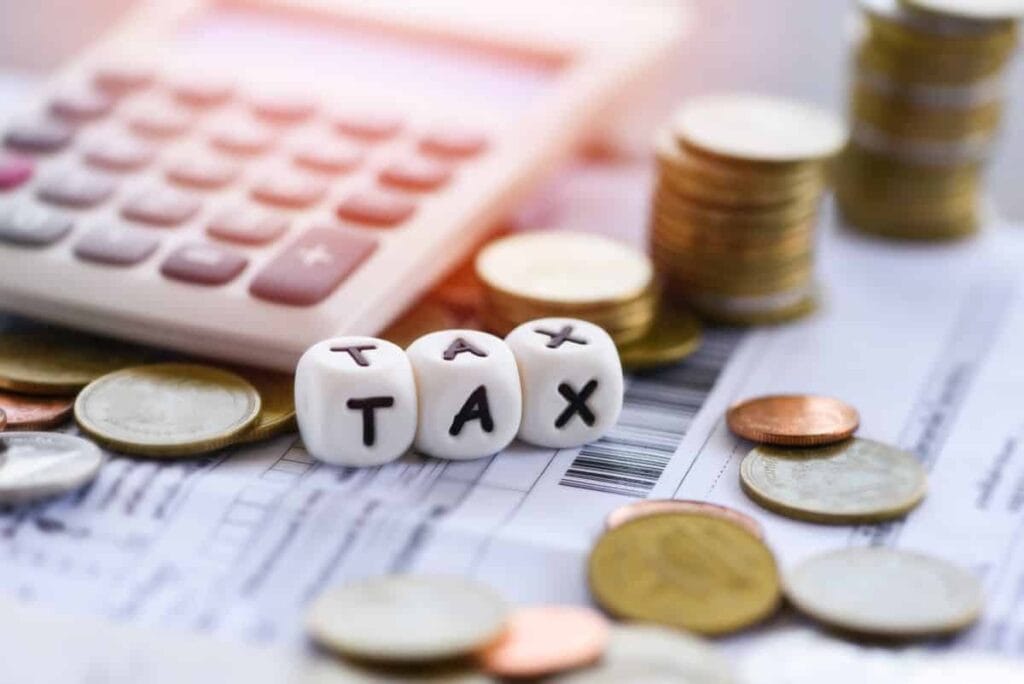Many Australians work from home due to the worldwide movement towards remote employment. This increases flexibility but also changes your tax condition. Understanding how working from home impacts your taxes and what deductions you may qualify for is vital as we traverse this new territory. The following tax recommendations are for Australian home-based workers.
Understand What Expenses Are Deductible
Knowing what costs you may claim on your tax return when working from home in Australia is crucial. Let's examine ignored costs that impact tax deductions.
1. Home Office Running Costs
Home office operating expenditures are a major deduction. This comprises power for lights and electronics, work-specific heating and cooling, and work-space cleaning. These charges must be distinguished from home expenses.
2. Communication Expenses
In the digital age, staying connected is key; this is where your phone and internet costs come into play. You can claim some of these bills, but determining the exact percentage used for work-related purposes is key. This might involve keeping a log of work-related calls or calculating the data used for work activities compared to personal use.
3. Equipment and Furniture
The ATO allows deductions for the depreciation of office furniture and equipment. This includes your desk, office chair, computer, and even small items like stationery and accessories. If you purchase new equipment for your home office, these costs can often be claimed. However, there are limits and specific rules about depreciation that should be considered, so it’s wise to familiarise yourself with these or consult a tax professional.
4. Stationery and Office Supplies
Small items can add up, and this is true for stationery and other office supplies. These are generally deductible if you're buying pens, paper, printer ink, or other office essentials specifically for your job. As with other expenses, keeping receipts and records is crucial for substantiating your claims.
5. Home Office Building and Maintenance
Occasionally, if your work from home requires it, you may need to modify your home office space. This could include setting up ergonomic fixtures or maintaining the area specifically used for work. While rare, these expenses can also be considered for deductions, provided they are directly related to your income-producing activities.
6. What's Not Deductible?
Understanding what you can't is as important as knowing what to claim. General household items and costs that aren’t directly related to your work activity, like rent, mortgage interest, water rates, or general home repairs, are typically not deductible. Personal expenses must be carefully separated from work-related costs.
Understanding what deductible costs while working from home might improve your tax return. Keeping detailed records and distinguishing between personal and professional costs is crucial. When in doubt, consulting with a tax professional who can provide guidance tailored to your circumstances is always beneficial. Remember, staying informed and organised is your gateway to maximising your tax benefits in the Australian work-from-home landscape.
Know the Methods for Calculating Home Office Expenses
Understanding the various home office expenditure deduction strategies might improve your tax return. Each strategy has advantages and disadvantages, depending on the scenario. Take a closer look at these ways to help you decide.
1. The Fixed Rate Method
Many Australians choose the Fixed Rate Method. You can claim 67 cents per hour worked from home for depreciation of energy, gas, and office furniture. The simplicity of this procedure makes it beautiful. Just record your home-based work hours in a diary or timesheet. This method doesn't cover phone, internet, or computer consumables, which can be calculated separately.
2. The Actual Cost Method
The Actual Cost Method could be more appropriate for those who prefer a more detailed approach. This method involves calculating the actual running costs of your home office. It involves maintaining accurate records of all costs, including bills, and estimating the work-related amount. If your home office occupies 10% of your floor space, you can recover 10% of heating expenditures. This approach is more laborious but accurate and may benefit people with high home office costs.
3. Which Method to Choose?
Deciding on the best method depends on your circumstances. If you have modest home office expenditures or want a simple method, the Fixed Rate Method may work well. If you have substantial home office expenditures and are prepared to keep careful records, the Actual Cost Method may yield bigger deductions.
Understanding these home office expenditure calculation methods is essential for Australian remote workers to maximise tax benefits. Each approach has merits and downsides, so choose based on your position and desire to keep accurate data. Tax regulations and incentives vary, so follow the ATO's guidance. Tax professionals may clarify and maximise qualifying claims when in question.
Keep Good Records
The tax deduction rule for home office expenditures is to 'maintain accurate records.' The Australian Taxation Office (ATO) encourages supporting paperwork for claims. What is excellent record-keeping, and how can you fulfil ATO standards?
Start with detailed recordkeeping. Those using fixed-rate or real-cost techniques to assess home office expenditures must record their working hours. A basic spreadsheet or handwritten journal will do. This record must be updated periodically and correctly represent your work hours.
Also, receipts and bills. Keeping receipts for new office equipment, stationery, phone and internet bills, and power bills is important. These documents are the backbone of your claim and provide a clear trail to each expense. Digital records are perfectly acceptable, so scanning or taking photos of receipts is a good habit to develop.
More detailed records are needed for those delving into the actual cost method. It provides receipts and a detailed evaluation of how each cost affects your job. To claim a portion of your heating payment, calculate the proportion of your house utilised for work and add it to the overall cost. Organising these calculations in a dedicated folder or digital file will be incredibly helpful come tax time.
Also vital in record-keeping is consistency. It takes more than collecting receipts and logs to keep them throughout the year. Consistency supports your claims and creates a pattern that makes tax time easier.
Remember that the ATO requires you to preserve tax records for five years after claiming a deduction. This long-term storage means you should have a reliable record-archiving system. Digital storage solutions can be particularly effective, offering both organisation and space-saving benefits.
Lastly, remember that good record-keeping is for more than just compliance. You, the taxpayer, can benefit. Well-maintained records let you claim all deductions, which can improve your tax outcome. It also gives you peace of mind that you have all the paperwork if the ATO questions your claims.
Australian home office expense claimants must keep accurate records. Compliance with ATO requirements and maximum deductions are achieved. Being careful, regular, and systematic in your record-keeping makes tax return preparation easier and more profitable.

Understand the Implications for Capital Gains Tax (CGT)
Australians working from home must understand Capital Gains Tax (CGT), but it's complicated. Using part of your house as an office might affect CGT, especially if you sell. Understanding and preparing for this topic is key.
Your principal house is usually exempt from Australian Capital Gains Tax. Once you start utilising part of your house for business, things change. A vital term is 'exclusively'. CGT may apply if you sell a home office used only for work. This may be considered a partial conversion of your home from a residential to an income-generating property by the ATO.
CGT effectiveness relies on numerous aspects. This includes the percentage of your house used for work. If your home office occupies 10% of the floor area and you've deducted it, 10% of the capital gain on the sale of your property may be taxed. The length of time you've worked from home also matters. CGT becomes more likely as this period lengthens.
The amount and length of home office use, the property's market value, and any capital upgrades complicate CGT calculation. Many think this computation might be intimidating, but a tax professional can help.
Remember that not all work-from-home circumstances cause CGT. Sometimes working from your living room or kitchen table counts. CGT becomes a worry when you claim deductions on a work-only room in your home.
Like other tax concerns, documentation is crucial. Keeping precise records of your home office use, including its size and duration, will help determine CGT. This is another reason tax record-keeping is important.
Working from home has numerous perks; however, Capital Gains Tax may apply. Understanding how utilising part of your house as an office affects your taxes might help you avoid surprises. Being knowledgeable and receiving expert guidance are the best ways to handle CGT for your home office. Thus, you may enjoy working from home while preparing for potential tax issues.
Common Mistakes to Avoid
Understanding Australian home office tax deductions is like walking a tightrope—it needs balance, attention to detail, and awareness of possible hazards. Overestimating work-related expenditures is a typical error. Without a system or diary, people often devote more of their phone, internet, or electrical expenditures to work. Determining the work-related component of mixed-use expenditures must be fair and reasonable.
Personal costs are another common mistake area. Work-related and personal expenses might be blurred. For instance, claiming the whole cost of a room that functions as an office, living space, or home internet might need fixing. The goal is to segregate these costs and claim only work-related expenses correctly.
Not keeping enough documents is another major error. The ATO needs proof of deductions. Keep receipts, job-related phone call records, or a home office work hours journal. You may lose deductions if the ATO audits you without these records.
Updates on tax laws and regulations are vital but often need to be noticed. Tax regulations change, so staying current is crucial to maximising deductions while staying legal. Knowing about temporary procedures like the Shortcut Method for estimating home office expenditures or the fast asset write-off programme might cost you deductions.
The final error is not consulting a tax specialist when in doubt. Tax law is complicated. Therefore, expert counsel can help you understand and maximise your tax status. Home office deductions are complicated, but a tax professional can help you avoid typical mistakes with customised guidance.
Claiming home office costs on your Australian tax return is complicated. Avoid overestimating job-related costs, correctly segregate personal and business expenses, keep good records, remain abreast of tax law changes, and seek expert guidance when needed. Avoiding these mistakes can make tax filing easier.
Seek Professional Advice
Working from home in Australia might be like sailing through uncharted waters regarding tax regulations and deductions. A skilled tax counsellor is not just useful but crucial here. Consult a specialist to optimise your tax status and make educated decisions that fit your circumstances, not only comply with the Australian Taxation Office (ATO).
Tax professionals have more expertise and experience than Internet or informal guidance. They remain current on tax rules, regulations, and changes that may affect your return. This is especially important during fast change, such as the current transition to remote work and its tax implications.
Tax professionals provide individualised guidance, which is a major benefit. Every work-from-home situation has different expenditures, home offices, and incomes. A tax expert can help you claim all your deductions and understand difficult issues like Capital Gains Tax (CGT) on your property.
Tax specialists may help you organise your finances strategically. They can advise on structuring costs and assets to minimise future taxes. This forethought can be invaluable when planning major changes like home office renovations or work equipment upgrades.
Professional counsel provides invaluable piece of mind. The danger of mistakes and ATO audits is reduced by having a professional write and evaluate your tax return. Tax specialists ensure accuracy in filings and provide help for ATO enquiries and audits, providing a comforting safety net.
In addition to annual tax return preparation, a tax adviser may advise you on tax-efficient investment choices and long-term financial planning. This comprehensive strategy can greatly affect your finances.
While navigating your tax return independently is possible, the complexities involved in claiming home office deductions and understanding tax laws make seeking professional advice a wise decision. A tax professional provides expertise and compliance, tailored advice, and peace of mind. As the work landscape evolves, having a knowledgeable advisor by your side is an invaluable asset for any Australian working from home.
Conclusion
Finally, working from home in Australia has created new tax issues and opportunities. Tax deductions and rules might be confusing, but knowing the fundamentals, from what costs are deductible to how to calculate home office expenses, can improve your tax returns.
Deductions depend on thorough record-keeping. It simplifies tax filing and prepares you for ATO questions. Knowing how Capital Gains Tax works and how your home office affects your property's tax position. Understanding this complex tax code is essential for home-based business owners.
Most essential, get expert help. Tax regulations are complex and changeable. A skilled tax expert can help you optimise your tax status and provide you peace of mind.
As our work and family lives change, remaining aware and proactive about tax duties and possibilities is crucial. Use these tax ideas and tactics to confidently and financially navigate the work-from-home age. Being prepared and knowledgeable is the best way to handle tax season stress-free.
Content Summary
- Working from home has become increasingly popular due to the global trend towards remote employment.
- This has led to increased flexibility but also changes in tax conditions.
- Understanding how working from home impacts taxes and what deductions you may qualify for is crucial.
- Deductible expenses include home office running costs, communication expenses, equipment and furniture, stationery and office supplies, and home office building and maintenance.
- These expenses must be distinguished from home expenses and must be accounted for.
- Understanding what is not deductible is equally important as knowing what to claim.
- General household items and costs unrelated to work activity are typically not deductible.
- Personal expenses must be carefully separated from work-related costs.
- There are two methods for calculating home office expenditure deductions: the Fixed Rate Method and the Actual Cost Method.
- The Fixed Rate Method allows deductions for energy, gas, and office furniture depreciation. In contrast, the Actual Cost Method involves calculating the actual running costs of your home office and maintaining accurate records of all costs, including bills.
- Choosing the best method depends on your circumstances, with the Fixed Rate Method being suitable for modest home office expenditures or those with substantial expenses and careful record-keeping.
- Tax regulations and incentives vary, so follow the ATO's guidance to maximise qualifying claims.
- Accurate records are essential for Australian home office expense claimants to maximise tax benefits.
- Good record-keeping includes detailed working hours, receipts and bills, and consistency.
- A basic spreadsheet or handwritten journal should be used to record working hours, while digital records are acceptable.
- More detailed records are needed for those using the Actual Cost Method, such as calculating heating payments and organising calculations in a dedicated folder or digital file.
- Consistency is vital in record-keeping, as it supports claims and creates a pattern that makes tax time easier.
- The ATO requires tax records to be preserved for five years after claiming a deduction, which means having a reliable record-archiving system.
- Digital storage solutions can be particularly effective, offering both organisation and space-saving benefits.
- Good record-keeping is not just for compliance with ATO requirements; it also benefits taxpayers by allowing them to claim all deductions and have all the paperwork if the ATO questions their claims.
- Being careful, regular, and systematic in record-keeping makes tax return preparation easier and more profitable.
- Working from home in Australia presents new tax challenges and opportunities, including Capital Gains Tax (CGT).
- Understanding the implications of CGT is crucial for home-based business owners, as it affects their property's tax position.
- The principal house is usually exempt from CGT.
- Still, a home office is used solely for work. In that case, it may be considered a partial conversion of the home from a residential to an income-generating property by the Australian Taxation Office (ATO).
- CGT effectiveness depends on various factors, such as the percentage of the house used for work, the time worked from home, the property's market value, and any capital upgrades.
- It is important to keep precise records of home office use, including its size and duration, to determine CGT.
- Common mistakes to avoid when understanding Australian home office tax deductions include overestimating work-related expenditures, blurring personal and work-related expenses, not keeping enough documents, staying updated on tax laws and regulations, and not consulting a tax specialist when in doubt.
- A skilled tax counsellor can help optimise your tax status and make educated decisions that fit your circumstances, not only complying with the ATO.
- Tax professionals have more expertise and experience than Internet or informal guidance and remain current on tax rules, regulations, and changes that may affect your return.
- They provide individualised guidance, which is a major benefit.
- Every work-from-home situation has different expenditures, home offices, and incomes.
- A tax expert can help you claim deductions and understand difficult issues like CGT on your property.
- Professional counsel provides invaluable piece of mind, ensuring accuracy in filings and providing help for ATO enquiries and audits.
- In addition to annual tax return preparation, a tax adviser may advise on tax-efficient investment choices and long-term financial planning.
- In conclusion, working from home in Australia has created new tax issues and opportunities, but knowing the fundamentals, such as deductible costs and how to calculate home office expenses, can improve your tax returns.
- Thorough record-keeping is essential for simplifying tax filing and preparing for ATO questions.
- Being aware and proactive about tax duties and possibilities is crucial for home-based business owners.
Frequently Asked Questions
You can deduct a percentage of your energy and gas bills for heating, cooling, lighting, office furniture and equipment depreciation, phone and internet costs, and office supplies. Remember, these costs must be work-related.
Methods include the Fixed Rate Method (67 cents per hour for running expenditures) and the Actual Cost Method (calculating home office expenses). Choose the best approach for you.
If you sell your home office, CGT may apply. The impact depends on how much your house is utilised for business and as an office.
Yes, recommended. Tax regulations are complicated and changeable. A tax specialist can assist you in maximising deductions, understanding your home office setup's CGT consequences, and giving specialised guidance.















